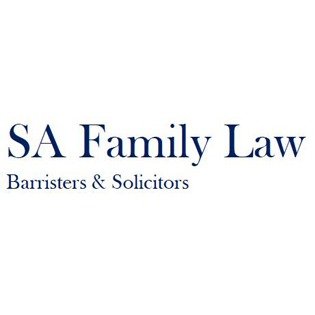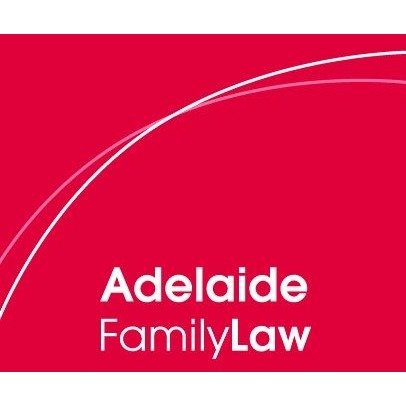Best Child Custody Lawyers in Adelaide
Share your needs with us, get contacted by law firms.
Free. Takes 2 min.
Free Guide to Hiring a Family Lawyer
List of the best lawyers in Adelaide, Australia
About Child Custody Law in Adelaide, Australia
Child custody law in Adelaide, Australia, is governed by both federal and local laws, primarily under the Family Law Act 1975. The emphasis in child custody cases, also known as 'parenting orders', is on the best interests of the child. This means that decisions are made to ensure children have meaningful relationships with both parents, provided it is safe, and that their welfare is protected. The law is designed to encourage parents to work together to reach agreements, but when that is not possible, the court intervenes.
Why You May Need a Lawyer
There are many scenarios where seeking legal advice on child custody is beneficial. When parents separate, they may not agree on the arrangements for the children, and a lawyer can help mediate or represent your interests. Legal assistance is also crucial if there are concerns about the safety of the child with one parent, if one parent is threatening to take the child away without consent, or if there's a need to formalize custody arrangements through a court order. Additionally, grandparents or relatives seeking custody or contact may also need legal advice.
Local Laws Overview
In Adelaide, the Family Law Act 1975 is the principal legislation for child custody matters. Key aspects include parental responsibility, which refers to all the duties, powers, responsibilities, and authority which, by law, parents have concerning their children. The term 'shared parental responsibility' is commonly applied, emphasizing that both parents are responsible for making long-term decisions about the children. Local laws also reinforce the child's right to maintain a relationship with both parents, provided it is in the child's best interest and does not risk their safety or wellbeing. Additionally, the Adelaide Family Court has specific procedures for resolving parenting disputes through mediation and conciliation.
Frequently Asked Questions
What is the difference between custody and parental responsibility?
The term "custody" is not commonly used under Australian family law. Instead, "parental responsibility" refers to the significant decisions regarding the child's upbringing, while "living arrangements" refer to with whom the child lives.
How is 'the best interests of the child' determined?
The court considers a variety of factors, including the child's views, relationships with each parent, the ability of each parent to provide for the child's needs, and any history of family violence.
Can children decide which parent they want to live with?
While the court considers the views of children, their age and maturity affect how much weight is given to their preferences.
What happens if one parent wants to relocate with the child?
Relocation is a complex issue that requires the consent of both parents or a court order. The best interests of the child remain the focal point in such scenarios.
What if my ex-partner is not following the custody arrangements?
Breaches of court orders can be addressed legally. Initially, dispute resolution may be advised, followed by enforcement orders through the court if necessary.
How are grandparents' rights regarded in child custody matters?
Grandparents have no automatic right to contact but can apply to the court for orders spending time with their grandchildren under certain circumstances.
What is the role of family dispute resolution (FDR)?
FDR is a mediation process aimed at helping parents reach agreements. It's a prerequisite for court applications unless exempted under specific circumstances, such as family violence.
Do I need a lawyer to change existing custody arrangements?
While not legally necessary, a lawyer can provide guidance on formalizing changes, especially when disputes arise.
Can I represent myself in a Family Court concerning child custody?
Yes, but it is advisable to seek legal advice due to the complexity of the legal system, particularly if the other parent has legal representation.
How long do child custody proceedings typically take?
Timelines vary depending on the case's complexity and whether matters must proceed to court, but prompt resolution is encouraged to minimize impact on the children.
Additional Resources
For more information and support, you may consider these resources:
- Legal Services Commission of SA: Offering free legal advice and assistance.
- Family Court of Australia: Provides extensive resources and forms for parenting orders.
- Relationships Australia South Australia: Offers family dispute resolution services.
- The Australian Government's Family Relationships Online portal.
Next Steps
If you require legal assistance in child custody matters, consider the following steps:
- Contact a family lawyer in Adelaide to discuss your situation and understand your legal options.
- Engage a lawyer experienced in child custody cases to aid negotiations or represent you in court.
- Participate in mediation services to attempt reaching an agreement outside of court.
- If necessary, prepare your case documents with your lawyer's guidance for submission to the Family Court.
- Stay informed and actively involved in each stage of the legal process to ensure your child’s best interests are served.
Disclaimer:
The information provided on this page is for general informational purposes only and does not constitute legal advice. While we strive to ensure the accuracy and relevance of the content, legal information may change over time, and interpretations of the law can vary. You should always consult with a qualified legal professional for advice specific to your situation.
We disclaim all liability for actions taken or not taken based on the content of this page. If you believe any information is incorrect or outdated, please contact us, and we will review and update it where appropriate.

















